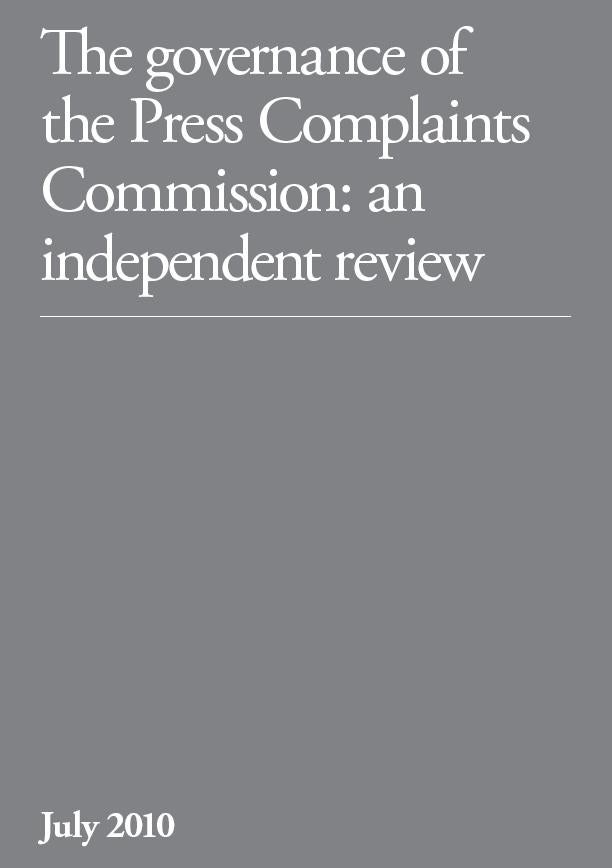
Here are the main recommendations from the Governance Review of the Press Complaints Commission chaired by former PCC member Vivien Hepworth and released today.
The review stops short of calling for fines for editors, or giving the PCC new investigatory powers (as The Guardian has demanded in the wake of the News of the World phone-hacking affair). But it does make a series of wide-ranging suggested changes to the way the self-regulatory body for the British press works
A more pro-active role for the PCC
The review suggests the PCC should be “contacting those at the centre of news stories to offer its services, when it becomes aware – either through intelligence from individual commissioners or the secretariat, or following complaints by third parties – of issues of possible concern”.
It says the PCC should consider ‘initiating investigations relating to possible breaches of the code of its own volition where there are no obvious first parties who might complain (for example in cases involving payments to witnesses or criminals”.
Currently the PCC only acts when it has received a complaint from someone directly involved with the story in question.
Sanctions
Admitting that critics of the PCC believe it is ‘toothless’because it does not impose fines, the review states: ‘it is not within our remit directly to consider the issue of sanctions”.
However it states that fines would ‘introduce confrontation into a collaborative approach that generally works well”.
However, the review states that “the PCC must do more to demonstrate the effectiveness of its current sanctions, and ensure that they are properly exercised and understood”.
‘The commission already has the power to use oral hearings should it believe this would assist its function; it should be willing to deploy this power in appropriately serious circumstances and to make public that it is doing so.”
It adds: ‘The Governance Review recommends that the commission and PressBof [the body which collects the industry dues which fund the PCC] should consider setting up a joint working group further to consider sanctions. We believe there are a range of creative ideas about how existing sanctions could be made more effective – and be seen to be so – and that these should be investigated.”
It states that ‘the PCC should consider revealing publicly when it has admonished an editor via correspondence”.
And it it also says: “The PCC should engage in more direct follow-up with editors, once a breach of the Code has been established and a ruling made. This may mean: the Chairman or Director meeting with the editor to discuss the problem; acting to ensure that practices within a newsroom have changed; inquiring – in very serious cases – about whether disciplinary action has been enforced.”
More power to lay (non press) members of the PCC
The majority of the members of the Press Complaints Commission are “lay members” from outside the industry.
The review suggests beefing up their role by ensuring that the deputy chairman of the PCC is a lay member.
The review said that its consultation had garnered little criticism of the Editors’ Code of Practice itself, but it noted that the Editors’ Code of Pratice Committee – chaired by Daily Mail editor Paul Dacre – has attracted “considerable criticism” because it has no lay members.
Stopping short of calling for non-industry representatives to sit on this committee, it said: “It is essential, however, to show there is an effective lay contribution to the workings of the code.”
More widespread involvement of editors in the PCC
No mention is made of the long-standing gripe that there is no representative on the PCC from journalist organisations, such as the National Union of Journalists.
But the review does suggest that ‘editorial service on the commission should become
more widespread, and be regarded as a duty of editors”.
It suggests a rota system so all national newspaper editors serve on the PCC
Transparency
The review recommends that the the PCC should publish the minutes of its meetings.
Email pged@pressgazette.co.uk to point out mistakes, provide story tips or send in a letter for publication on our "Letters Page" blog






